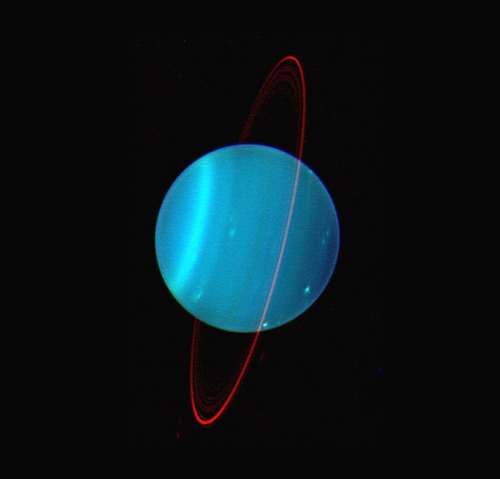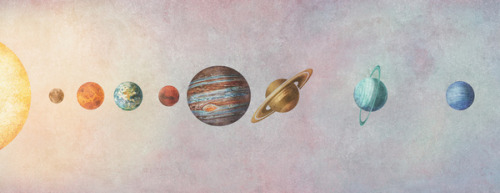Uranus - Blog Posts

“This was all your fault!”


Someone said he has the homestuck fan fit

Uranus sticker/keychain idea



The silly :D pt 3-5
First part

The silly :D
Next part

Gay planet people (yippee)

They’re perfect for each other

The Uranus appears


This was originally supposed to be a small doodle but I got carried away
@planetizedcomic

Uranus after he scares away all his moons saying he’ll turn them into rings:
I found this audio and I had the urge to create this

They feeling a bit goofy, a bit silly. Might cause some chaos

Oh no, Christmas art

Squishable thing
Discovery Alert! New Picture of Uranus released by James Webb Telescope on Dec 18, 2023 - James Webb Telescope's Close-Up on Uranus' Dynamic Atmosphere. Read more here
Discovery Alert! New Picture of Uranus released by James Webb Telescope on Dec 18, 2023 - James Webb Telescope's Close-Up on Uranus' Dynamic Atmosphere. Read more here

🌌 Exploring Uranus: A Celestial Odyssey with Webb's Lens 🚀
Dive into the cosmos with NASA's James Webb Space Telescope as it turns its gaze toward the enigmatic ice giant, Uranus! 🪐✨ The recent image captures this distant planet in unprecedented detail, unveiling rings, moons, and atmospheric features in a mesmerizing display.
📸 Capturing Clarity: Webb's Near-Infrared Camera (NIRCam) brings Uranus to life, revealing the seasonal north polar cap, dim inner and outer rings, and the elusive Zeta ring – the faintest and closest to the planet.
🌈 Moons in Motion: Spot 9 of Uranus' 27 moons in this celestial dance, each orbiting within the 98-degree tilt of the planet. 🌙
🔍 Intricate Details: With a rotation of just 17 hours, Uranus poses a challenge for observatories like Webb. Multiple exposures create a composite image, allowing us to witness storms and atmospheric features in this dynamic system.
🔭 Beyond Our Solar System: Uranus, a unique gem in our solar system, provides insights into the mysteries of exoplanets. Webb's discoveries contribute to our understanding of similar celestial bodies discovered beyond our cosmic neighborhood.
🌠 Join the Cosmic Conversation: Webb's lens takes us on a journey of discovery, unraveling the secrets of Uranus and the broader universe. What celestial wonders do you hope Webb will unveil next? ✨
📎 Credits: NASA, ESA, CSA, STScI
#Uranus #JamesWebbTelescope #SpaceExploration #CosmicDiscovery #WebbInAction #NASA #TumblrPost 🚀🔭
James Webb Telescope Reveals Unprecedented Image of Uranus and its Features.
NASA’s James Webb Space Telescope has captured a breathtaking image of Uranus, the solar system's ice giant. This impressive image shows Uranus' dramatic rings and bright features in its atmosphere. The sensitivity of Webb's data has allowed the observatory to detect even the faintest dusty rings, a feat that has only been accomplished by two other facilities: Voyager 2 spacecraft and the Keck Observatory. Read full article here -


This video compare the sizes of different celestial bodies that we know and remind how tiny we are in this system. Tighten your seatbelts and get ready to explore endless universe 🚀 Make sure you follow us @the_astrophysics_forum To stay on board 👨🚀 . . . . . . . #comparision #celestial #bodies #mercury #mars #venus #betelgeuse #sirius #sun #neptune #uranus #jupiter #saturn #wolf359 #aldebaran #antares #pollux #rigel #astrophysics #astronomy #science #nasa #universe #space #cosmos #earth #blackhole #planets #solarsystem (at Outer Space) https://www.instagram.com/p/CC0-2bVDFSq/?igshid=6z98f6ogyyas




The gas giants of our solar system are Jupiter, Saturn, Uranus and Neptune.
planet painting by @Kerstin-Jacobs http://little-starlight-galaxy.eu




our solar system - planet painting by
@Kerstin-Jacobs Germany
http://little-starlight-galaxy.eu
tag yourself: the solar system
mercury: the leader, athletic, friendly, summer vibes, always making plans for the group, organized, impatient, wine lover, reads in their free time
venus: the pretty friend, instagram famous, watches cartoons, very kind, loves skirts and dresses, smart, horrible at money management
earth: the young friend, wears flower crowns, fashionable, probably short as heck, clumsy, lovable, kind of sad inside, idolizes their friends
mars: the mysterious friend, reads comic books, prefers summer over winter, messy hair, lipstick stains on every cup, gardens
jupiter: the mom/dad friend, protective, always drinking but never hungover, loves the outdoors, very patient, has a bad temper if you cross them, collects something
saturn: the powerful friend, will be president someday probably, you want to raid their wardrobe, always has good advice, bad at cooking, loves movies
uranus: the quiet friend, kind of introverted, always laughing, tags you in memes all the time, lurks in the group chat but never responds, dog lover
neptune: the aesthetic friend, doesn’t care what people think, loves art, owns 395754 pairs of jeans, reckless driver, always want to go somewhere
pluto: the smol friend, always busy, loves their friends (will fight for their friends), boy/girl crazy, bottles up their feelings, can never make up their mind, huge smile
Ten interesting facts about Uranus
Like the classical planets, Uranus is visible to the naked eye, but it was never recognised as a planet by ancient observers because of its dimness and slow orbit. Sir William Herschel announced its discovery on 13 March 1781, expanding the known boundaries of the Solar System for the first time in history and making Uranus the first planet discovered with a telescope.

Uranus is the seventh planet from the Sun. It has the third-largest planetary radius and fourth-largest planetary mass in the Solar System. Uranus is similar in composition to Neptune, and both have different bulk chemical composition from that of the larger gas giants Jupiter and Saturn.

(The five largest moons of Uranus) Like all of the giant planets, Uranus has its share of moons. At present, astronomers have confirmed the existence of 27 natural satellites. But for the most part, these moons are small and irregular.

Uranus’ moons are named after characters created by William Shakespeare and Alexander Pope. These include Oberon, Titania and Miranda. All are frozen worlds with dark surfaces. Some are ice and rock mixtures. The most interesting Uranian moon is Miranda; it has ice canyons, terraces, and other strange-looking surface areas.

Only one spacecraft in the history of spaceflight has ever made a close approach to Uranus. NASA’s Voyager 2 conducted its closest approach to Uranus on January 24th, 1986, passing within 81,000 km of the cloud tops of Uranus. It took thousands of photographs of the gas/ice giant and its moons before speeding off towards its next target: Neptune.

Uranus has rings: All the gas and ice giants have their own ring systems, and Uranus’ is the second most dramatic set of rings in the Solar System.

Uranus makes one trip around the Sun every 84 Earth years. During some parts of its orbit one or the other of its poles point directly at the Sun and get about 42 years of direct sunlight. The rest of the time they are in darkness.

All of the planets in the Solar System rotate on their axis, with a tilt that’s similar to the Sun. In many cases, planet’s have an axial tilt, where one of their poles will be inclined slightly towards the Sun. But the axial tilt of Uranus is a staggering 98 degrees! In other words, the planet is rotating on its side.

Uranus is approximately 4 times the sizes of Earth and 63 times its volume.

Uranus is blue-green in color, the result of methane in its mostly hydrogen-helium atmosphere. The planet is often dubbed an ice giant, since 80 percent or more of its mass is made up of a fluid mix of water, methane, and ammonia ices.

Uranus hits the coldest temperatures of any planet. With minimum atmospheric temperature of -224°C Uranus is nearly coldest planet in the solar system. While Neptune doesn’t get as cold as Uranus it is on average colder. The upper atmosphere of Uranus is covered by a methane haze which hides the storms that take place in the cloud decks.
source
source
source
Images credit: NASA/ wikipedia
Uranus in 7th — unstable lover?
Uranus represents chaos, and 7th house is the house of romantic relationships.
I have this placement and come to think of it, I’m always the “unstable” one in my relationships. I’ve also seemed to attract partners who also have moon square mars, like me. Perhaps I do use smartphone apps for dating/hook ups more than the average joe ? But maybe not. The whole world is digital now. I did once volunteer at a homeless shelter with my boyfriend. Uranus is the planet of humanitarianism.










